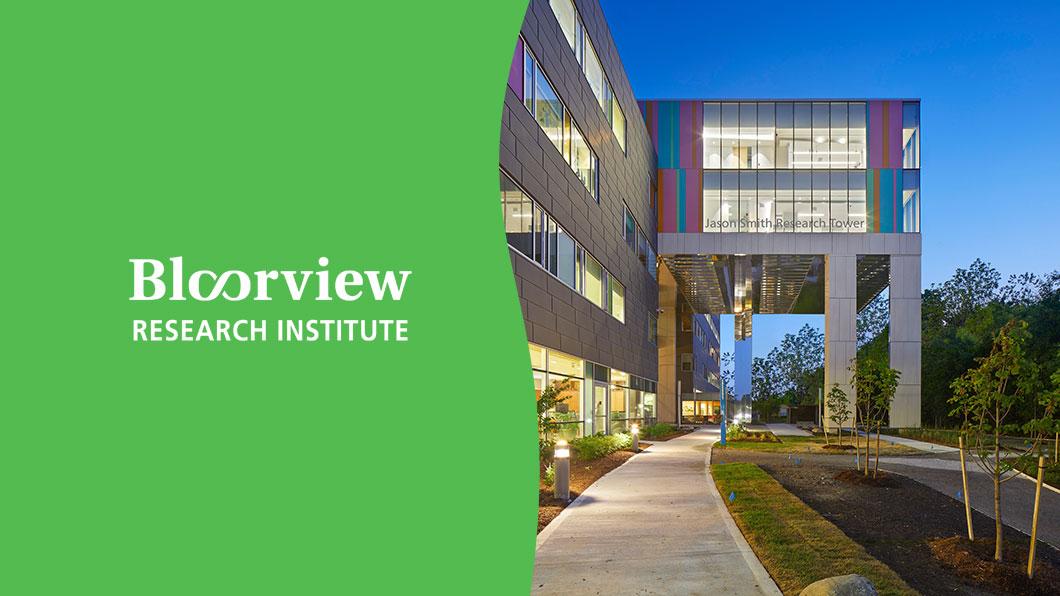
Today, Holland Bloorview Kids Rehabilitation Hospital celebrates the completion of its historic Bloorview Research Institute (BRI) expansion with the unveiling of its newly constructed, 11,000-square-foot research tower. Through its new facilities, equipment and talent, the BRI is now home to the largest concentration of pediatric disability research in the world.
“The potential to unleash into the world more of the exciting, research-driven discoveries being made right under our roof comes at such a critical time for Canada’s children and youth,” said Julia Hanigsberg, president and CEO at Holland Bloorview. “Let’s celebrate this incredible Bloorview Research Institute milestone and continue on our mission to ensure kids and youth with disabilities are not forgotten and have the opportunity to live full, healthy, meaningful lives.”
This important milestone will lead to ground-breaking discoveries that will enhance the quality of life for children and youth with disabilities and developmental differences – about 400,000 in Canada and millions worldwide. The expansion of the BRI’s enterprise will lead to greater impact from our efforts to enable healthier, more inclusive futures for children, youth, and families locally and around the world.
“We believe it is our mission and responsibility to lead transformative research to understand the diverse experiences of children, youth, and families with neurodevelopmental differences and disabilities and enable them to live their best life as they see it,” said Dr. Evdokia Anagnostou, vice president of research at Holland Bloorview, director of the BRI, and child neurologist. “This space will allow the BRI to expand our youth- and family-partnered research, while also allowing us to push boundaries by developing both personalized interventions and interventions in our public spaces. We see a future where inclusive communities welcome diverse skills and contributions.”
“My son is so inspired by the care and research that happens at Holland Bloorview that he wants to become a doctor and set his own destiny,” said Arpita Ghosh, parent of nine-year-old client, Rehan, who has cerebral palsy and autism. “As part of a larger study, Rehan volunteered to have a scan on the BRI’s research MRI because he wants to contribute to a future where there are no limits to a kid’s potential.”
In addition to the elevated, two-storey Jason Smith Research Tower, the expansion also includes a renovation of the existing 17,000-square-foot research space. A key feature of the new state-of-the-art facilities are eight discovery hubs – interdisciplinary shared spaces that support collaborative research in critical areas including data science, developmental diversity and brain development, neuromodulation and rapid prototyping.
“This new space will drive discoveries that will lead to a more inclusive world for children and youth with disabilities and developmental differences. The COVID-19 pandemic further reinforced just how important it is to remove barriers and advance equity for some of our community’s most vulnerable children and their families, who need our support now more than ever,” said Jason Smith, hospital foundation board member, whose generosity and leadership ensured the project’s success.
The $32-million Grow Holland Bloorview Research fundraising campaign was announced in 2018 and gave many donors, including Smith and his family, a chance to invest in the future of childhood disability research. The campaign, with hospital and foundation board member Neil Selfe as the chair, set the BRI on a trajectory to advance key themes of impact. These include: exploring how to integrate research into frontline care; developing and improving interventions that can promote health and well-being; removing barriers to meaningful inclusion and participation; and understanding developmental diversity by studying the brains, bodies and pathways of children and youth with disabilities. Examples of current studies include:
- evaluating how wearable exoskeletons powered by robotics can give kids with mobility challenges the chance to stand and walk;
- supporting independent play in children and youth with limited speech and movement through brain computer interface applications;
- air travel experiences of children and youth with physical disabilities; and
- improving the quality of life for autistic children through early intervention programs, tailored interventions across the life span, and wearable technologies.
- More current studies by BRI’s scientists can be found here (PDF).
“Holland Bloorview is incredibly thankful for the community that comes together time and time again to support the kids and families we serve,” said Sandra Hawken, president and CEO, Holland Bloorview Kids Rehabilitation Hospital Foundation. “We are so grateful for all the donors who believe in empowering life-changing research through the Grow Holland Bloorview Research campaign and helped make tangible the foundation that will shape the future of pediatric disability research.”
Toronto-based Gow Hastings Architects was awarded the challenge to re-imagine the BRI’s space. The research tower and existing facility renovation were designed in consultation with the hospital’s clients and families to ensure they are family-friendly and accessible, making participating in important research studies a more inviting experience.
“The colourful and elevated two-storey addition immerses scientists, staff and families into the surrounding nature as it suspends over the ravine, offering unique and inspiring perspectives while also raising the profile of the hospital within the community,” said Philip Hastings, partner, Gow Hastings Architects. “The renovation unites different research disciplines into one open and accessible work environment, fostering a sense of collaboration and interaction.”
To learn more about the Grow Holland Bloorview Research campaign and how the BRI is transforming childhood disability research, visit hollandbloorview.ca/hbresearch.